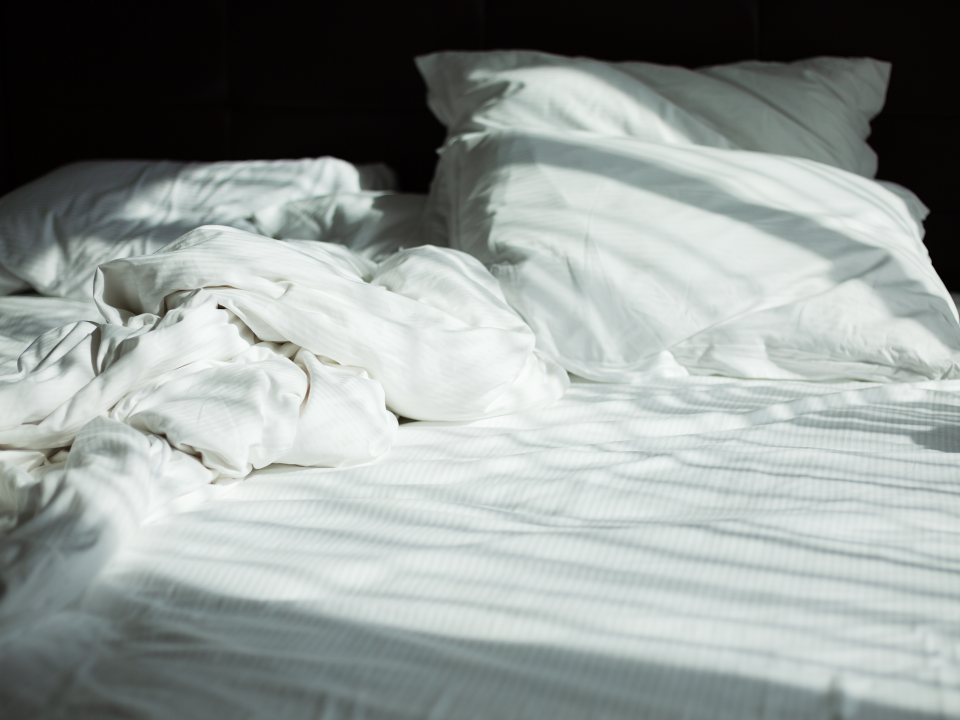Everything you need to know about yeast infections and sex
Yeast infections are fairly common and some things can make you more likely to get them, including being sexually active.
Despite how common they are, there are still plenty of misconceptions surrounding this fungal infection.
When it comes to whether or not you should have sex while you have a yeast infection, experts' opinions vary.
A yeast infection is an incredibly common fungal infection - WebMD estimates that 75% of women will experience at least one yeast infection in their lifetime and 40% to 45% will experience more than one.
A yeast infection is typically caused by a change in the vaginal pH levels, but not only individuals with vaginas get them.
"A yeast infection can occur on the skin and nails, in the mouth, on the vagina/vulva (known as vaginal candidiasis), and on the penis," said Dr. Kecia Gaither, double board-certified in OB-GYN and Maternal-Fetal Medicine, Director of Perinatal Services at NYC Health + Hospitals/Lincoln.
She also notes that common symptoms of a yeast infection include itching, redness, swelling, and burning.
Anyone can get a yeast infection - but certain health issues and activities can increase your risk
"Yeast infections tend to occur frequently in women whose immune systems may be impaired - from conditions like diabetes, pregnancy, and HIV - but also through antibiotic use, taking oral contraceptives and hormone therapies which increase estrogen levels," Dr. Gaither told INSIDER.
Dr. Alyssa Dweck, gynecologist and author of "The Complete A to Z for your V," told INSIDER that contraceptive rings, diaphragms, and sponges can also increase your risk for getting a yeast infection.
Additionally, yeast infections can also be caused by sitting in wet bathing suits or workout clothes for prolonged periods of time since moisture can cause the bacteria to develop.
Yeast infections can be passed through sexual activity, but it's not considered a sexually transmitted infection
Sexual activity itself doesn't actually cause a yeast infection, but it can increase your risk since it can alter your pH balance and allow yeast to take over, said Dr. Carolyn DeLucia, OB-GYN and advisor to Remedy Review.
Dr. Dweck told INSIDER that most healthy immune systems can fight off yeast infections despite exposure, but vaginal, oral, and anal sex as well as improperly cleaned sex toys can contribute to pH changes in one's body. Lubricants that contain glycerin can also increase one's risk for a yeast infection, but this is typically only the case if they are prone to yeast infections.
As for how long after sexual activity it would take for a yeast infection to develop, it can vary. Some notice symptoms immediately after sex while others may not feel major symptoms for a few days, said Dr. Dweck.
Read More: What you should always do after sex to keep your vagina healthy
When it comes to whether or not you should have sex while you are treating a yeast infection, experts' opinions vary
Treatment for yeast infections is generally pretty simple, but experts don't have a unanimous decision on whether or not you should abstain from sex while the infection resolves. Dr. Gaither said, with treatment, it usually takes one to two weeks for a yeast infection to resolve. During this time, she advises her patients to refrain from intercourse.
Dr. Dweck said that although having sex with an active yeast infection isn't necessarily dangerous, it could be uncomfortable or lead to a longer healing process.
"The intense vaginal itching and burning and inflammation of the tissues may make sex uncomfortable," said Dr.Dweck. "Thrusting could also cause further tissue inflammation, hindering the healing process. In addition, internal anti-yeast creams can leak out or be irritating to a partner during sex."
There's also a chance you could transmit it to your partner by exposure, especially if they have a vagina, said Dr. DeLucia. Although it's less common for those with penises to get yeast infections, they can also get them on the tip of their penis from having unprotected vaginal sex with someone who has a yeast infection. Dr. Gaither adds that individuals who aren't circumcised are at higher risk of this.
All in all, whether or not you opt to have intercourse while dealing with a yeast infection is up to you - but you may want to discuss it with your doctor and your partner first.
Visit INSIDER's homepage for more.

 Yahoo Finance
Yahoo Finance 


